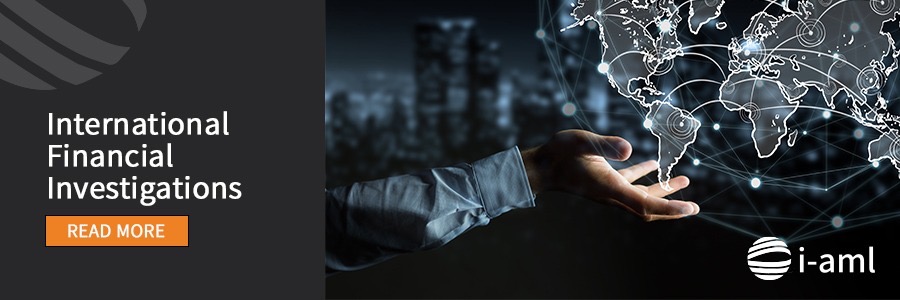The COVID-19 (coronavirus) crisis was a reminder, if any were needed, that criminal creativity thrives in times of chaos, exploiting people’s fears. Unsafe face masks, counterfeit drugs, and suspect medical equipment flooded the market, touted as miracle cures against the coronavirus by unscrupulous actors wanting to turn a quick profit.
Companies with no record in health won big government contracts and, as people’s situation deteriorated, organized crime stepped in to lend a “helping hand” to those suffering financial distress. Where most people saw a global public health and economic crisis, criminals saw an opportunity.
What this criminal behavior, indeed almost all financial economic crime, has in common is that the funds involved move through the formal financial system. The service providers that execute those transactions are in a good position to gather firsthand intelligence on what is happening. For this reason, banks and other financial institutions have anti-money-laundering and countering the financing of terrorism (AML/CFT) obligations to find out who is paying whom and why and, if necessary, to alert the authorities. Financial institutions are the first line of defense against this criminal behavior; they are the gatekeepers to the international financial system.
But they cannot manage this task on their own; they require support from authorities to understand what threats they are exposed to, what criminal groups and typologies are prevalent in their system, and how exactly they are to undertake their obligations. They need a guiding, sometimes firm, hand.
Financial sector supervisors play a crucial role in this regard. Through off-site supervision and on-site visits, they ensure that the financial sector understands and effectively implements its AML/CFT obligations, providing guidance and, where necessary, enforcing with sanctions commensurate with the breach.
..
..
As a development institution, the World Bank cares deeply about protecting societies against the harm inflicted by money laundering and the profit-generating crime that is at its core. Organized crime, corruption, and terrorism are all “global public bads” that have a disproportionate effect on developing societies, particularly on persons living in fragile and conflict-affected states. Where organized crime takes root, small businesses pay protection money; where corruption thrives, patients pay bribes for medical treatment; where terrorist groups and warlords rule, it takes courage just to attend school. While we need to fight those ills directly, through our work on governance and our assistance to sector-specific operations, we also need to attack them on the back end by following the money. But protecting the integrity of the financial sector is also an objective in its own right: the criminal capture of financial institutions can damage the financial sector as a whole, weaken financial stability, and erode public trust in the financial sector. Examples abound of the harm done by financial institutions in the hands of criminal enterprise. Supervisors are the guardians of their financial sector’s integrity, ensuring that only persons deemed to be “fit and proper”—that is, sufficiently expert and of integrity—can take up a controlling position within that sector.
We have reissued this handbook to assist supervisors on the basics of supervision of financial institutions’ AML/CFT obligations. Since its original publication 12 years ago, this handbook has proved to be an often consulted, frequently downloaded publication, commended for its highly practical and directly applicable content. However, given technological progress and the development of fintech and crypto assets, developments in supervisory practice, unprecedented changes wrought by the COVID-19 pandemic, and overall changes in criminal behavior, we have updated the text to include new good practices and to ensure alignment with the 2012 Financial Action Task Force global AML/CFT standard. Surely the most important of changes in the standards are the fundamental orientation on risk and the need to adapt one’s AML/CFT system to target the risks to which a country is exposed. These changes are especially important for the wide variety of countries served by the World Bank, which are constrained by resources and have vastly different risk profiles. Risk and how it should inform supervisory practice are now integral parts of this handbook.
We hope that a new generation of AML/CFT supervisors will find this handbook useful. Surely now it is imperative to make sure that criminals and corrupt officials do not siphon off much- needed resources to their own unproductive and nefarious ends. The United Nations Sustainable Development Goals recognize the importance of the fight against illicit financial flows. We want to help you, our client countries, be effective in that fight.
Indermit S. Gill, Vice President, Equitable Growth, Finance, and Institutions. The World Bank
..
September 4, 2022 Published by The World Bank Open Knowledge.







